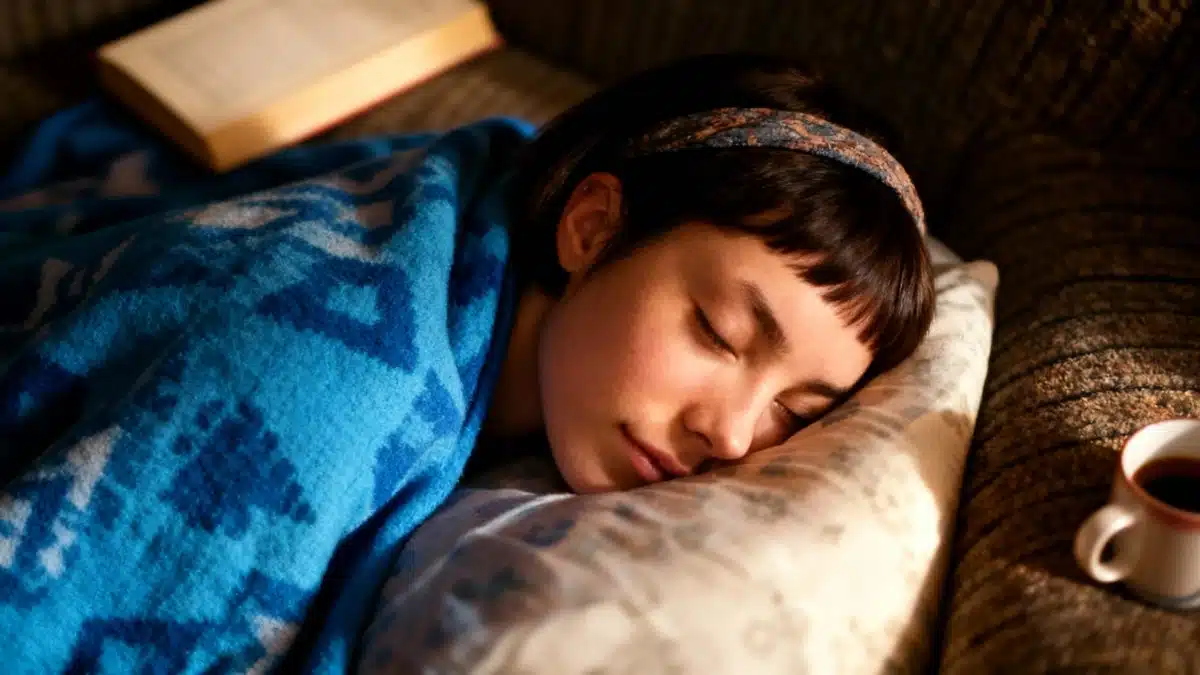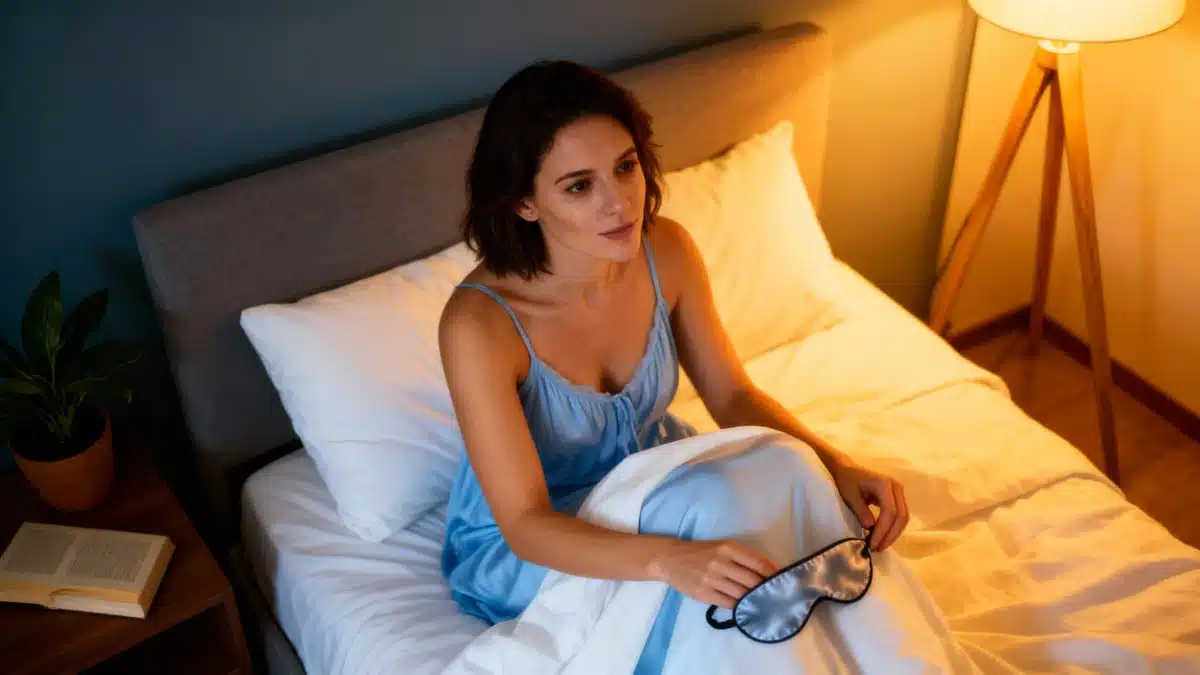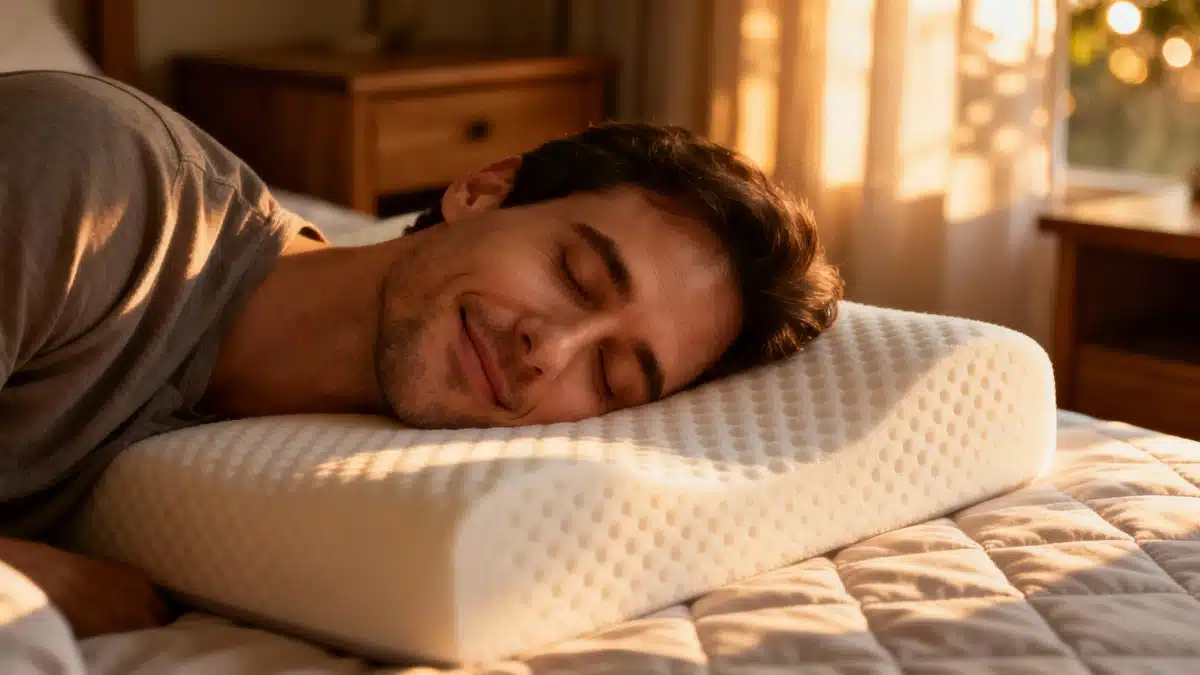Why insomnia’s no joke
According to France’s National Institute for Sleep and Vigilance, about 1 in 5 people experience insomnia. And in 9% of cases, it’s considered severe. Insomnia isn’t just being unhappy with how long or how well you sleep—it’s linked to a mix of symptoms, like:
- Lack of energy during the day
- Daytime drowsiness (that 3 PM slump, anyone?)
- Trouble with focus and attention
- Mood swings or feeling a bit off
And if that wasn’t bad enough, long-term insomnia is associated with an increased risk of various chronic illnesses. Beyond impacting your quality of life, it might even worsen symptoms of physical or mental health issues—think chronic pain, high blood pressure, and depression. In short, good sleep isn’t just beauty rest; it’s a pillar of health.
Smart habits first, then natural sleep aids
If you’re struggling to get quality shut-eye, the first thing to look at is your evening routine. It’s been shown that too much screen time before bed, high stress levels, fatty or sugary meals late in the day, and going to bed too late can all contribute to insomnia. In other words, your Netflix binge and midnight snack might be part of the problem.
Sure, your doctor can prescribe sleeping pills—but healthy sleep habits can make a real difference. Before reaching for medication, the Sleep Foundation, a US-based nonprofit focused on sleep solutions, recommends trying out these nine natural sleep aids. Here’s their lineup:
9 natural sleep remedies experts recommend
- Melatonin
“Melatonin is a hormone that regulates sleep, produced by the pineal gland in our brain,” notes the Sleep Foundation. “A wide range of factors can interfere with melatonin production, especially nighttime light exposure, but also aging and certain illnesses. Low levels of melatonin can cause sleep problems.”
Melatonin supplements can help counteract this effect. But a word of caution:
“Side effects are generally mild but can include dizziness, nausea, and headaches,”
adds the Foundation. These supplements aren’t recommended for children.
- Lavender
“Most studies on lavender’s effectiveness as a sleep aid have focused on lavender essential oil, though some people also use the dried herb in teas or in their pillow.”
- Valerian Root
“The roots and stems of the valerian plant are available as teas, tinctures, capsules, extracts, and tablets. Valerian is commonly recommended for people with insomnia or poor quality sleep. Most people report it works best after several weeks of use.”
- Chamomile
“Wild chamomile has been used to treat sleep troubles since ancient Egypt. The most common preparations of German chamomile are capsules, tincture, and tea. Chamomile is generally considered safe when used as tea or taken orally.”
- Passionflower
“The calming effects of passionflower were comparable to those of a commonly prescribed sedative. Passionflower may also improve sleep quality and help with falling asleep and staying asleep.”
- Hops
“Besides being the principal flavor in beer, hops flowers are used by some people as a natural sleep aid. As with most natural supplements, the benefits of hops haven’t been thoroughly studied to determine for certain if they help people sleep better. However, there is preliminary evidence that hops supplements may help stabilize circadian rhythms.”
- Tart Cherry Juice
“Tart cherry juice appears to increase melatonin levels and boost the availability of tryptophan. This can improve sleep quality and make it easier to fall asleep.”
- Magnesium
“Some research suggests that magnesium supplements can help reduce insomnia in older adults, whether used alone or with melatonin and zinc. Magnesium may also lessen excessive daytime sleepiness in adults.”
You can also up your magnesium intake through your diet. Try dark chocolate, whole grains, legumes (such as dried beans and lentils), green vegetables, dried fruits, and nutty treats like walnuts.
- Glycine
Glycine is an amino acid and neurotransmitter produced by the body and available in some foods. Studies suggest glycine may improve sleep quality, possibly by lowering body temperature. Taking glycine before bed may also reduce the impact of not getting enough sleep. Natural sources are mostly animal proteins and eggs.
The bottom line
So, before surrendering to prescription sleep aids, consider these gentle, natural options. Of course, good sleeping habits are essential—think of them as the “bedrock” for these nine all-natural helpers to build on. Here’s to brighter mornings (and no need for counting sheep in alien languages).

John is a curious mind who loves to write about diverse topics. Passionate about sharing his thoughts and perspectives, he enjoys sparking conversations and encouraging discovery. For him, every subject is an invitation to discuss and learn.





